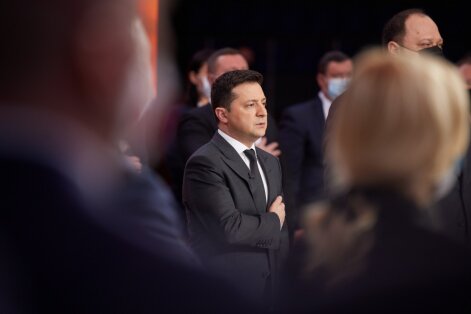The bill No. 5600 (signed by President Zelensky in December 2021) has caused heated discussions in the Ukrainian community. For now, let’s overlook the record-breaking 11,000 corrections after its first reading, and a storm of other controversial innovations. Rather, let's focus on one small, but important, aspect concerning the extractive industry.
One of the ideas for filling the budget was to increase the rent for ore mining. At the same time, the first version of the law provided for the determining of rent for extracting manganese ore, in accordance with market prices, compared to that of iron ore. Miraculously, this change disappeared from the final version of the law: they decided to leave the manganese business on the old system of calculating rent, according to the cost of production.
As one can imagine, I.V. Kolomoisky—after having received such a delightful gift—was able to joyfully pop open his champagne bottle, even before the New Year. After all, Ukraine has the largest reserves of manganese ores in the world (about 42% of the world's deposits), and the entire Ukrainian manganese business is concentrated in the hands of Mr. Kolomoisky.
This “inconspicuous” correction, against the background of the 11,000 mentioned above, deprived the Ukrainian budget of 800 million hryvnias—neither more nor less.
And the government began to close the gaping hole immediately "after the holidays."
On January 4, 2022, the Office of the Prosecutor General of Ukraine, together with the Shevchenko District Court of Kyiv, blocked all funds to the PJSC ArcelorMittal Kryvyi Rih accounts.
On February 1, the Security Service of Ukraine, the Bureau of Economic Security, and the Prosecutor's office paid visits to the Krivoy Rog Mining and Processing Plants of the Metinvest group to conduct searches.
Both cases are connected by a common theme—rent for the use of subsoil, with their key distinction being their approach to calculating payments. The tax authorities believe that it is necessary to calculate the rent based on the final product: enriched ore or concentrate pellets; while the mining companies argue that you need to pay only for the mined ore, writing off the enrichment process a part of the production activity.
Representatives of the mining and metallurgical complex explained the differences between ore and concentrate, in an interview with delo.ua, with the help of a metaphor about tomatoes and tomato juice. Tomatoes (i.e. the ore) are a marketable product; and in order to "extract" them, certain costs must be incurred. Tomato juice, in turn, is already a concentrate—that is, a product of deeper processing. Andrey Levitsky, technical director of the AMKR mining department, explains, “There is no such product as ore in nature. It is already a product of primary processing since before reaching a marketable condition (pieces less than 20 mm in size), it has to be extracted from the soul and then go through four stages of crushing.”
One can understand the desire of fiscal and regulatory authorities to extract as many taxes from the “deep pocket” metallurgists as possible, especially given that 2021 was the most successful year in the history of players such as Metinvest and Ferrexpo. According to a senior analyst at Dragon Capital Denis Sakva, “…in the first nine months of 2021, the revenue of the Metinvest group increased by 78%, and Ferrexpo reported an increase in revenue by 74.3% in the first half of the year.” So, it is quite likely that the Zhevago Metallurgical Group will be next in line to receive a “nightmare audit” from the responsible authorities.
It should be noted that the fiscal service works in the recognizably creative style of "additional accrual" of large, super-large, and astronomically large numbers.
It is not difficult to remember such high-profile cases as a retroactive "additional charge" of more than 1 billion UAH in taxes to the medical company Sinevo in 2021, as well as the striking fine issued to Nova Poshta for a damaged package in the amount of 326 million UAH.
All this would be great fun if every pragmatic and rational person, observing these events and facts, did not want to ask the State and the President, himself, a few very simple questions:
- Why do some businesses pay rent while others don't? What, in fact, is the difference and why is selective taxation being introduced in the country?
- What signal does the president personally send to entrepreneurs, signing with one hand the law on state inspections of business (which should reduce pressure), and with the other, covering his eye to blind himself from the machine gun of inspections and additional charges?
- Where and whom do “investment nannies” protect?
- How does all this affect the image of Ukraine as a country for international investment?
The questions are somewhat rhetorical. After all, and unfortunately, many of the answers are already quite clear. The only thing that remains unknown is whether or not Zelensky will be able to finally put to rest the cliché of a president’s certain affections to various “dear friends” that has been made so well known to us by all his of predecessors, move from selectivity, and adopt the simple and understandable stance of “the law for one is the same for all.”
